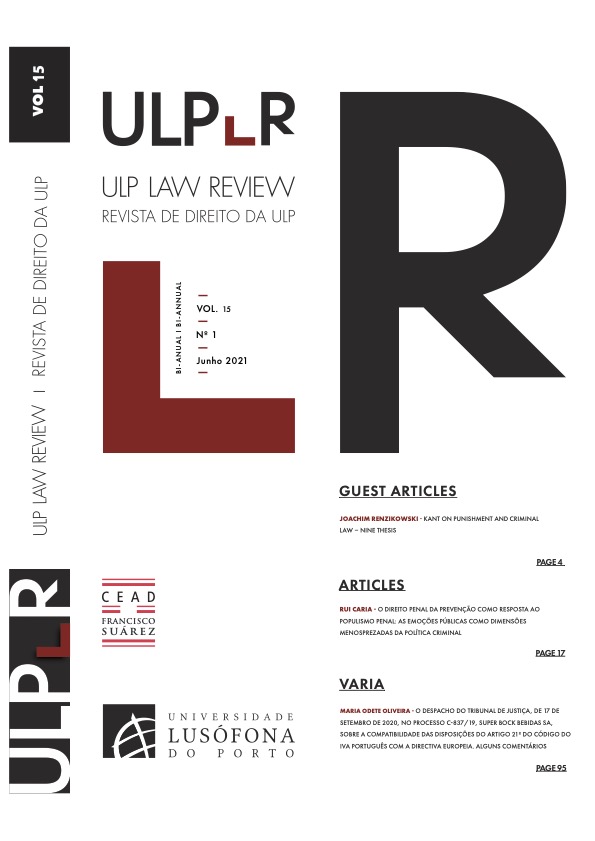Kant on Punishment and Criminal Law – nine Theses
Resumen
Kant is generally regarded as a representative of the theory of retaliation. This position is accused as scientific untenable. Supposedly, the idea of retaliation disregards all social purposes and demands punishment even where it was not necessary for the protection of legal interests.
Kant’s Metaphysics of Morals of 1797 contains an already quite sophisticated criminal theory of timeless quality. In order to elaborate on them, however, one must not, as is customary, pick out a few passages, but one must take note of the “whole” doctrine of law, in particular Kant’s statements on subjective law, on the abandonment of the law and on the rule of law.
The basic features of Kant’s theory of crime will be presented in the following nine theses, backed up by relevant textual evidence.
Descargas
Direitos de Autor (c) 2024 - Revista de direito da ULP

This work is licensed under a Creative Commons Attribution-NonCommercial 4.0 International License.







